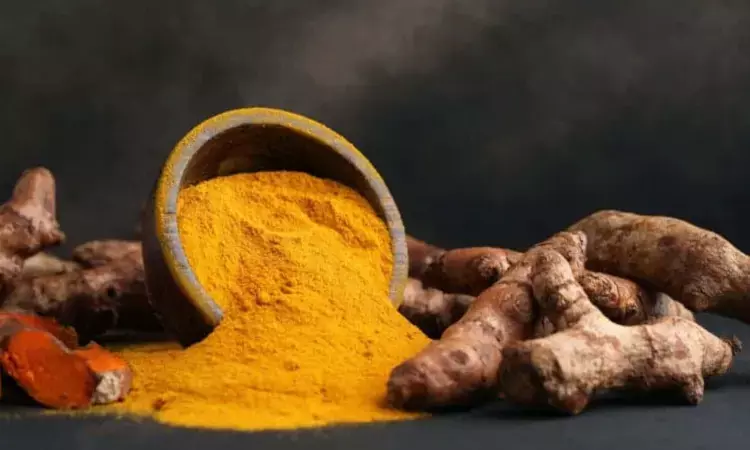- Home
- Medical news & Guidelines
- Anesthesiology
- Cardiology and CTVS
- Critical Care
- Dentistry
- Dermatology
- Diabetes and Endocrinology
- ENT
- Gastroenterology
- Medicine
- Nephrology
- Neurology
- Obstretics-Gynaecology
- Oncology
- Ophthalmology
- Orthopaedics
- Pediatrics-Neonatology
- Psychiatry
- Pulmonology
- Radiology
- Surgery
- Urology
- Laboratory Medicine
- Diet
- Nursing
- Paramedical
- Physiotherapy
- Health news
- Fact Check
- Bone Health Fact Check
- Brain Health Fact Check
- Cancer Related Fact Check
- Child Care Fact Check
- Dental and oral health fact check
- Diabetes and metabolic health fact check
- Diet and Nutrition Fact Check
- Eye and ENT Care Fact Check
- Fitness fact check
- Gut health fact check
- Heart health fact check
- Kidney health fact check
- Medical education fact check
- Men's health fact check
- Respiratory fact check
- Skin and hair care fact check
- Vaccine and Immunization fact check
- Women's health fact check
- AYUSH
- State News
- Andaman and Nicobar Islands
- Andhra Pradesh
- Arunachal Pradesh
- Assam
- Bihar
- Chandigarh
- Chattisgarh
- Dadra and Nagar Haveli
- Daman and Diu
- Delhi
- Goa
- Gujarat
- Haryana
- Himachal Pradesh
- Jammu & Kashmir
- Jharkhand
- Karnataka
- Kerala
- Ladakh
- Lakshadweep
- Madhya Pradesh
- Maharashtra
- Manipur
- Meghalaya
- Mizoram
- Nagaland
- Odisha
- Puducherry
- Punjab
- Rajasthan
- Sikkim
- Tamil Nadu
- Telangana
- Tripura
- Uttar Pradesh
- Uttrakhand
- West Bengal
- Medical Education
- Industry
Curcumin therapy effective for non-alcoholic fatty liver disease

A new study by Zahra Safari and team showed that patients with non-alcoholic fatty liver disease (NAFLD) may benefit from the daily use of curcumin when taking 250 mg. The findings of this study were published in Frontiers in Nutrition.
The most prevalent kind of liver disease is non-alcoholic fatty liver disease. A natural polyphenol called curcumin may be beneficial in treating steatohepatitis and liver steatosis. The current study aims to assess the effects of phytosomal curcumin on individuals with non-alcoholic fatty livers' lipid profiles, fasting blood sugar, liver enzymes, anthropometric indices, fibrosis, and steatosis. The rhizome of turmeric (Curcuma Longa) contains active ingredients known as curcuminoids, of which curcumin is the most notable. Turmeric has shown to have strong antioxidant, anti-inflammatory, and antifibrotic qualities as well as insulin sensitizing effects in in vitro and animal investigations. As a result, it may show potential in the treatment of NAFLD patients.
The subjects had a 12-week follow-up after being randomly assigned to receive curcumin-phosphatidylserine phytosomal or a placebo. At the start and conclusion of the clinical study, information on anthropometric indices, lipid profiles, blood glucose, blood pressure, liver enzymes, hepatic steatosis, and fibrosis were gathered.
The key findings of this study were:
1. When compared to the placebo group, a 12-week supplementation regimen with phytosomal curcumin substantially decreased fibrosis and steatosis (p < 0.05).
2. In comparison to the placebo group, phytosomal curcumin significantly decreased blood pressure and waist circumference (p < 0.05).
3. Regarding changes in weight, body mass index, liver enzymes, fasting blood glucose, and lipid profile, there was no discernible difference between the phytosomal curcumin and placebo groups.
Reference:
Safari, Z., Bagherniya, M., Khoram, Z., Ebrahimi Varzaneh, A., Heidari, Z., Sahebkar, A., & Askari, G. (2023). The effect of curcumin on anthropometric indices, blood pressure, lipid profiles, fasting blood glucose, liver enzymes, fibrosis, and steatosis in non-alcoholic fatty livers. In Frontiers in Nutrition (Vol. 10). Frontiers Media SA. https://doi.org/10.3389/fnut.2023.1163950
Neuroscience Masters graduate
Jacinthlyn Sylvia, a Neuroscience Master's graduate from Chennai has worked extensively in deciphering the neurobiology of cognition and motor control in aging. She also has spread-out exposure to Neurosurgery from her Bachelor’s. She is currently involved in active Neuro-Oncology research. She is an upcoming neuroscientist with a fiery passion for writing. Her news cover at Medical Dialogues feature recent discoveries and updates from the healthcare and biomedical research fields. She can be reached at editorial@medicaldialogues.in
Dr Kamal Kant Kohli-MBBS, DTCD- a chest specialist with more than 30 years of practice and a flair for writing clinical articles, Dr Kamal Kant Kohli joined Medical Dialogues as a Chief Editor of Medical News. Besides writing articles, as an editor, he proofreads and verifies all the medical content published on Medical Dialogues including those coming from journals, studies,medical conferences,guidelines etc. Email: drkohli@medicaldialogues.in. Contact no. 011-43720751


